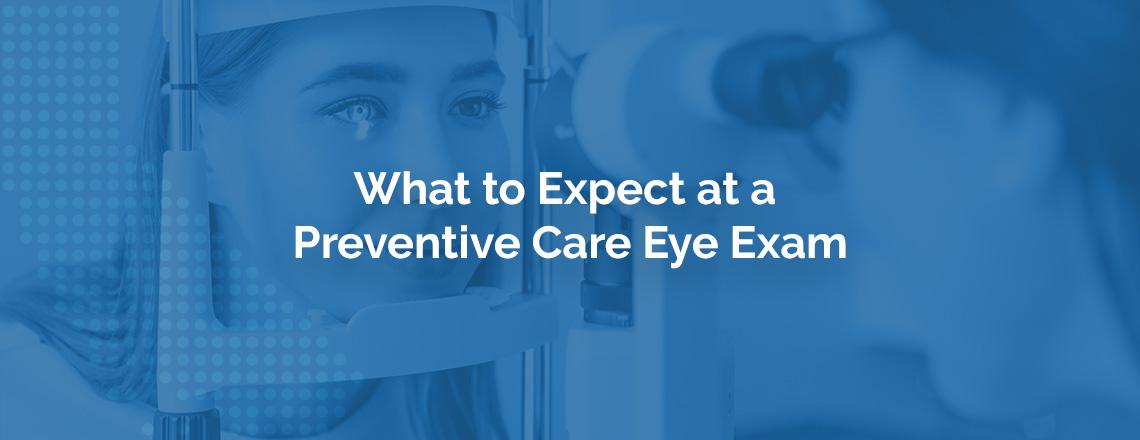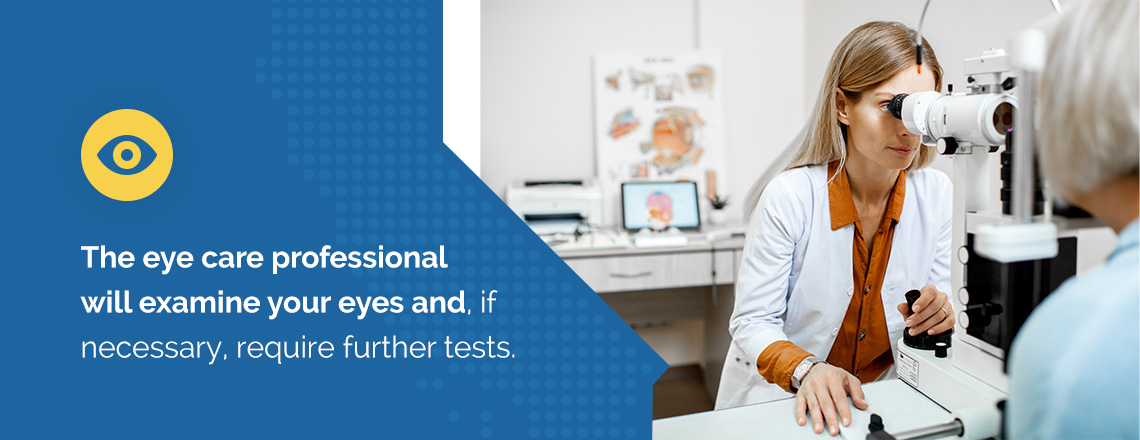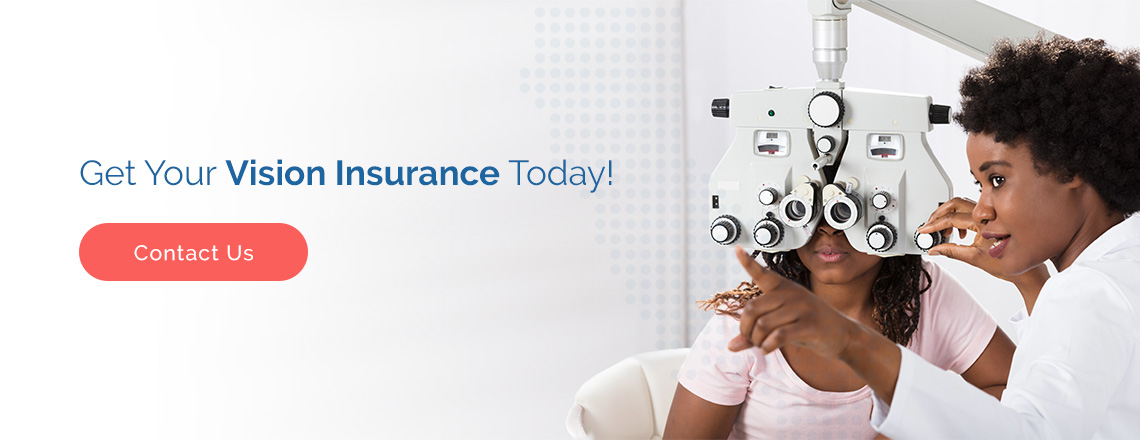What to Expect at a Preventive Care Eye Exam
Posted: March 27, 2025

A preventive care eye exam is essential for maintaining optimal eye health and vision clarity. During this comprehensive evaluation, eye care professionals assess your vision and overall eye health. This examination can detect early signs of eye diseases and systemic conditions, making regular checkups vital.
This article explores what to expect during a preventive care eye exam, including the tests performed, their importance and how they contribute to your overall well-being.
What to Expect at an Eye Exam
Eye care professionals, such as optometrists or ophthalmologists, conduct preventive eye examinations as part of routine health care. They assess eye health and identify potential problems or diseases before they escalate. The procedure and type of examinations differ based on the situation but often include the following components:
- Medical history review: The eye care professional might ask about your overall health, medications you are taking and any existing eye conditions or concerns.
- Eye health evaluation: The eye care professional will examine your eyes by checking the external and internal structures for signs of disease or abnormalities.
- Visual acuity test: You will be asked to read letters on an eye chart to assess your distance and near vision.
- Refraction test: This procedure helps determine whether you need prescription lenses by measuring how light focuses on your retina.
- Eye pressure management: The test helps screen for glaucoma by measuring the pressure inside your eyes.
- Pupil response test: The professional checks your pupils’ response to light, which can provide insight into your neurological health.
- Visual field test: This test assesses your peripheral vision by having you respond to lights or objects that appear in your side vision.
- Dilation: The eye care professional may use eye drops to dilate your pupils and thoroughly examine your retina or optic nerve.
Based on the results, the eye care professional will recommend treatments or corrective measures and may advise on follow-up care. They may also provide prescriptions for glasses or contact lenses.
How Often Should You Go for a Vision Checkup?
The frequency varies depending on age, eye health and risk factors. It is crucial to consult with your doctor for tailored advice. Besides routine examinations, several factors may also necessitate vision checkups. These include:
- Vision changes: If you notice changes in your eyesight, such as blurred vision, it’s best to schedule an eye examination.
- Chronic health conditions: Conditions like diabetes or hypertension can increase the risk of eye problems.
- Family history of eye disease: If your family has a history of eye conditions, you may need frequent checkups.
- Previous eye injuries or surgeries: Eye care professionals often require follow-up checkups after surgery or treatment of eye injuries.
- Occupational hazards: Consider regular checkups if your job requires prolonged computer use or exposure to harmful substances or bright lights.
Regular eye exams can help you maintain good vision and improve eye health.
How Do You Prepare for an Eye Exam?
Preparing for a preventive care eye examination should involve the following steps.
1. List Any Symptoms and Concerns
Have you experienced changes in your vision or eye-related concerns? Note down the symptoms and discuss them with the eye care professional during the exam.
2. Book an Appointment
Schedule an appointment for your eye exam in advance. This can prevent inconveniences, especially if you have time constraints or preferences for a particular eye care professional.
3. Gather the Necessary Documents and Information
Remember to bring all necessary documents, such as your vision insurance card and prescription information. Also, take your current eyeglasses or contact lenses.
4. Stay Calm
Most preventive eye care exams are routine, and the procedure is often painless and noninvasive. Try to relax and cooperate with the eye care professional.
What Is the Standard Eye Exam Procedure?

Eye checkup procedures vary depending on the type of examination. Generally, if you visit the same eye care professional or medical facility, they may have your information on record. Otherwise, they will take your details and direct you to the specialist. The same applies if a primary care physician refers you.
The eye care professional will examine your eyes and, if necessary, require further tests. Based on the results, they will advise, provide a prescription or develop a treatment plan. Always be transparent and clear with the eye care professional so they can deliver an effective solution.
How Long Does an Eye Exam Take?
The duration can range from a few minutes to hours, depending on the following factors:
- Type of eye examination: Specialized examinations for specific concerns usually take longer than routine assessments.
- Discussions and inquiries: The length of pre-examination and post-test discussions vary based on the circumstances.
- Testing procedures: Standard tests are often completed in a few minutes, but additional tests can take longer.
- Patient preparation and cooperation: Arriving early with the relevant information and documents facilitates the process.
- Eye care professional’s schedule: The practice’s schedule, wait time and process efficiency can affect the duration of your exam.
Why Vision Insurance Is Important
Vision insurance provides many benefits, such as:
- Access to affordable vision care: Vision insurance offers a cost-effective solution to eye care, reducing the financial burden.
- Encouraging preventive care: Having vision insurance can motivate you to prioritize your eye health and schedule regular exams.
- Access to a network of providers: Vision insurance plans often have a network of eye care providers with varying expertise.
- Health improvement: Taking a proactive approach with vision insurance results in early detection and reduces health risks.
How to Get Vision Insurance
Getting vision insurance is straightforward with the right information and assistance.
1. Research Different Options
There are different options, including employer-sponsored and individual plans. Employers offer employer-sponsored plans as part of their benefits package. Individual plans are purchased by individuals or families through insurance companies and online marketplaces like Covered California.
2. Learn the Vision Eligibility Requirements
The Affordable Care Act (ACA) only considers child vision an essential health benefit, so adults need personal coverage. In other words, your child might receive vision coverage, but you need supplemental vision insurance.
3. Compare Plans and Coverage
Select plans with a network of eye care professionals in your area. Then, compare coverage to determine which suits your needs. Check the monthly premiums and out-of-pocket expenses for different plans, as you’ll want one within your budget.
4. Enroll in a Plan
If your employer has a vision insurance package, contact your human resources department or its equivalence for enrollment instructions and deadlines. Otherwise, you can purchase an individual plan. Read the policy documents to understand the covered services, benefits, limitations and exclusions. Also, consider the network providers and claims procedure.
5. Utilize the Benefits
You can schedule an eye exam once you have enrolled and paid the premium with other related expenses. Maintain records and contact the vision insurance provider for questions or concerns regarding your coverage.
How Health for California Can Help
Health for California’s free service assists Californians in finding the ideal coverage. Our platform allows you to get quick quotes and compare plans without stress. We also have top professionals to help you determine the best plan considering your income, marital status, family size and location. They can also assist you throughout the enrollment process, ensuring you apply correctly and before the deadline.
Get Your Vision Insurance Today!
We have years of experience in the industry and impressive resources at your disposal. Our free services aim to enhance the health and well-being of Californians by guiding them to the right insurance plan.
Are you ready to prioritize your preventive eye care? Contact Health for California today!
